"Basic Crisis Room Decorum"
Original Airdate: March 24, 2015
There are two plots happening in the blessedly tame 100th episode of
Community, "Basic Crisis Room Decorum." The A-plot is about Annie and the rest of the group trying to stop City College from running a commercial about how Greendale once gave a degree to a dog named Ruffles. The B-plot is that the Dean has been texting a student in Japan, thinking he’s actually texting Jeff Winger. I’m going to talk way more about the former than the latter in this review.
I liked the A-plot of this episode, not only because it revolved around Annie and I love Annie, but also because I think it was a pretty good reflection of the show itself and that’s really good, since this is
Community’s 100th episode and all. A hundred episodes is a huge milestone for a TV show, especially one that seems to live perpetually on the bubble of cancellation like the series has during its entire run.
Community has always been a show about hope to me. The series was birthed during a time when cynicism was the key to “good comedy” and even though this show is sharp and jagged sometimes, even though it dips briefly into moments of despair, it always seems to float back up again.
One of my favorite episodes – if not my very favorite episode – is “Mixology Certification,” which is generally considered a “dark” episode by viewers and critics because there aren’t very many jokes and wacky hijinks throughout it. It’s an episode that touches one of those aforementioned moments of despair as all our characters get drunk in a bar and realize they’re unhappy with who they are and what the world has in store for them. They yell at each other, they lie to strangers to make themselves feel better, they get drinks thrown on them and they get trapped, separated and alone, in a bar entryway. It isn’t a good day.
But at the end of the episode, when Troy is driving his friends home after what seems to be a terrible 21st birthday meant to celebrate him becoming a man, Troy smiles. Because he still loves his friends, he still has hope, and the future is brighter than one bad day.
That’s what
Community is about. It’s about a world of broken people who still manage to make a loving family and find joy in each other in spite of all their faults and strangeness and bad days. For the most part, it’s a show that says, no – you don’t have to reject love in order to be cool, or funny, or smart. You don’t have to stoop to lower levels to win. You don’t have to give in to the hipster notion that liking things and loving people means you’re less than the people who don’t like things and don’t love people. Liking things, loving people – that’s how you show the world around you that you’re alive and paying attention.
I don’t know if I can say that
Community has absolutely stuck with what I believe to be its core concept through all its ups and downs as a show, but Annie’s role in “Basic Crisis Room Decorum” and the resolution of its story makes me think it’s still trying. I hope it continues to try.
“Basic Crisis Room Decorum”
In the case of Annie's story, this episode looks like a rehash of the season two's episode "Basic Rocket Science," in which Annie threatens to transfer to City College because she's ashamed of Greendale and its apathetic, ridiculous students.
The difference between the two episodes is that, in "Basic Rocket Science," Annie is ashamed of how Greendale makes her
look.
In "Basic Crisis Room Decorum," Annie is ashamed of how Greendale makes her
feel.
In season two, Annie couldn't stand that Greendale was a place that accepted and flew a butt flag. Greendale was a joke, and she didn't want a joke of a school to be on her resumé. She had too much self-respect and pride to stick around.
By season six, Annie's moved past the idea that maybe Greendale doesn't look so great on a resumé. She's accepted the school and its quirks and still takes pride in her success, her good grades, and her ability to run the "Save Greendale" campaign in spite of how Greendale looks on paper because, up until this episode, Annie's always believed that whatever problems she might encounter can be conquered with hard work, dedication, and the help of her friends. That's why she calls them in to help her stop City College's attack ad, only to end up horrified by their methods of doing so.
A fundamental trait in Annie Edison is that she wants the people around her to be the best people they can possibly be. She likes highlighting the good in others and trying to get them to see it in themselves, because Annie always sees it. But what if she stops seeing it? What if she starts only seeing the underhanded, manipulative, defeatist parts of the people she's spent all this effort trying to lift up? What if the people she's trying to help flat-out tell her that there's no reason to try and be good and that hope is pointless?
I'm sure that Annie is sick and tired of being the optimist in a sea of pessimism. After all: what's the point? Her friends apparently haven't grown in the six years she's known them, and even the new people in the group seem eternally fatalistic.
Annie thought she had an ally in Frankie, had another person with an A-Type personality and go-getter attitude to help inspire the people around her and bring Greendale out of whatever new darkness it might find itself in. Then she hears Frankie's declaration that she gave up hope a long time ago and was better for it, and Annie realizes that even Frankie is just the same as everyone else, just as pessimistic and just as content with her apathy and cynicism. If Frankie, a woman I'm sure Annie saw a lot of herself in, couldn't even keep herself from nose-diving into hopelessness, what chance does Annie have? If she's in a school full of people who have no drive, no ambition, and don't feel like they need to change anything – how long will it take before Annie is just like them?
So Annie wants out. She claims she wants to go to a place where her grades matter (and I'm sure that's a part of it), but the real motivation in her decision to bail on Greendale is watching her friends use dirty political tactics to fudge the truth instead of owning up to that truth and being better than it. She doesn't like seeing proof that her belief in the people around her was ill-founded and pointless, that maybe the goodness she saw in all of them was just an illusion brought about by the pointless trait of "hope." She cleans out her locker and thinks that, just maybe, things will be different at City College.
But then Abed brings Annie the new campaign commercial for Greendale, where a happy Dean Pelton is sitting with Ruffles the dog and promoting Greendale not as a place so terrible it give degrees to dogs, but as a place so full of hope and the possibility for improvement that it gives degrees to dogs. Annie is overjoyed; even when Jeff tells her the commercial was just a good tactical move. She doesn't care, because it
finally looks like hope wins. Her belief in the people around her didn't let her down in the end, which means that she can keep on believing in people. She can keep being an optimist in that sea of pessimism and, just maybe, she might be able to make a difference.
She hopes.
Other stuff:
- I was pretty happy with Chang in the previous two episodes, but he really fell flat in this one. I can’t pinpoint exactly what it is that works and doesn’t work about his character anymore.
- The Dean/Jeff plot fell flat, too, and I think too much time was dedicated to it. It might have been better as a one-time joke, but they kept revisiting it and it wore reeeeally thin.
- I think I felt more for Britta during the brief moment where she tells Elroy about how everyone treats her like a joke than I did during the entire previous episode. Because, let’s face it, the previous episode… treated her like a joke.
- “Could you guys be bigger nerds?” “No, most of us have achieved our maximum potential.”
- I’m so glad that they don’t seem to be trying to do Annie vs. Frankie in any real way. I just wanted to say that, because there was a lot of buzz about Annie vs. Frankie pre-season six and it made me really nervous.
- "I assume Chang thinks I sound like distant explosions and crying babies."
- We get a slow, sad reprise of "If I Die Before You" as Annie's packing up her stuff to leave. Because "Greendale Is Where I Belong" wouldn't really fit, would it?
- Hello there, confirmed birthday for Annie! 12/19/1990. I can't believe I'm older than Annie. [Jenn's note: Geez, I can't believe I'm older than Annie, too]
- “Yes, Jeff, don’t worry. I promise I’ll never mistake you for having a heart.” Oh, please, Annie, you know very well that Jeff has a heart. YOU’RE IN IT.
What did you all think of "Basic Crisis Room Decorum"? Did you enjoy the A-plot? Also, be sure to hit up the comments below and welcome Deb as my weekly co-reviewer this season for Community! (Also welcome her because she'll be sticking around to review Sleepy Hollow next season. I basically hold my writers captive, is what I'm saying.)
Until then, folks! :)

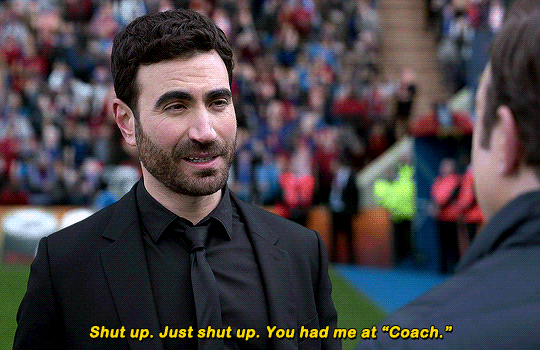



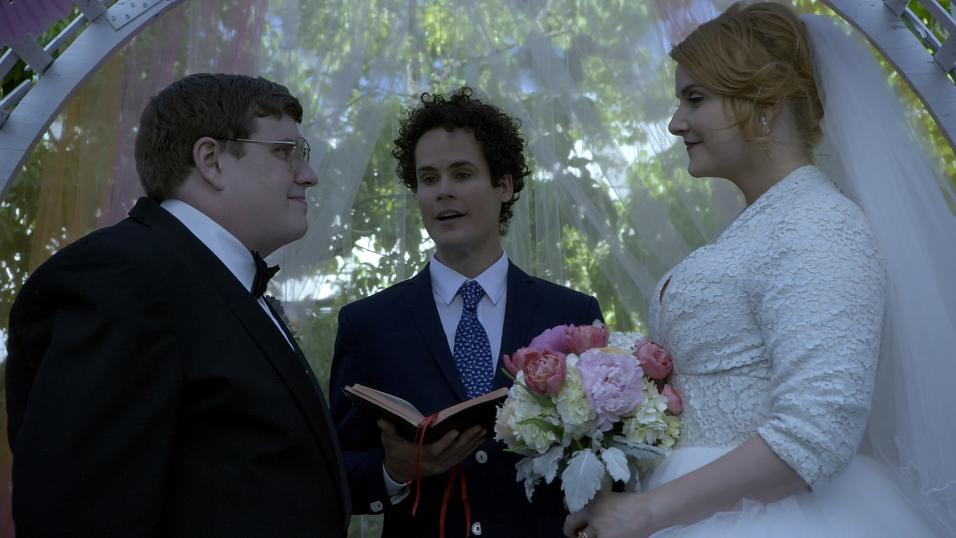
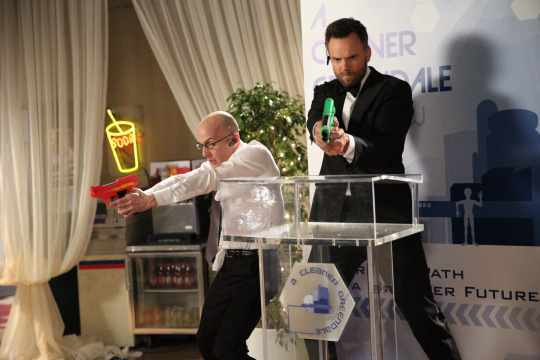

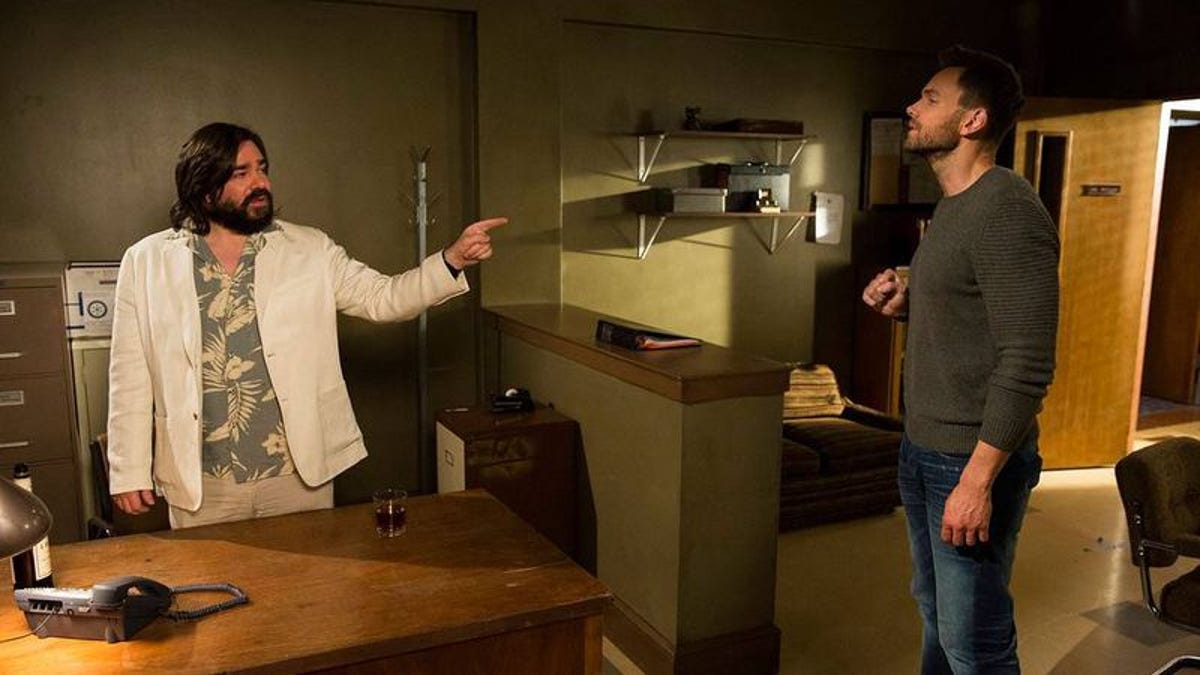
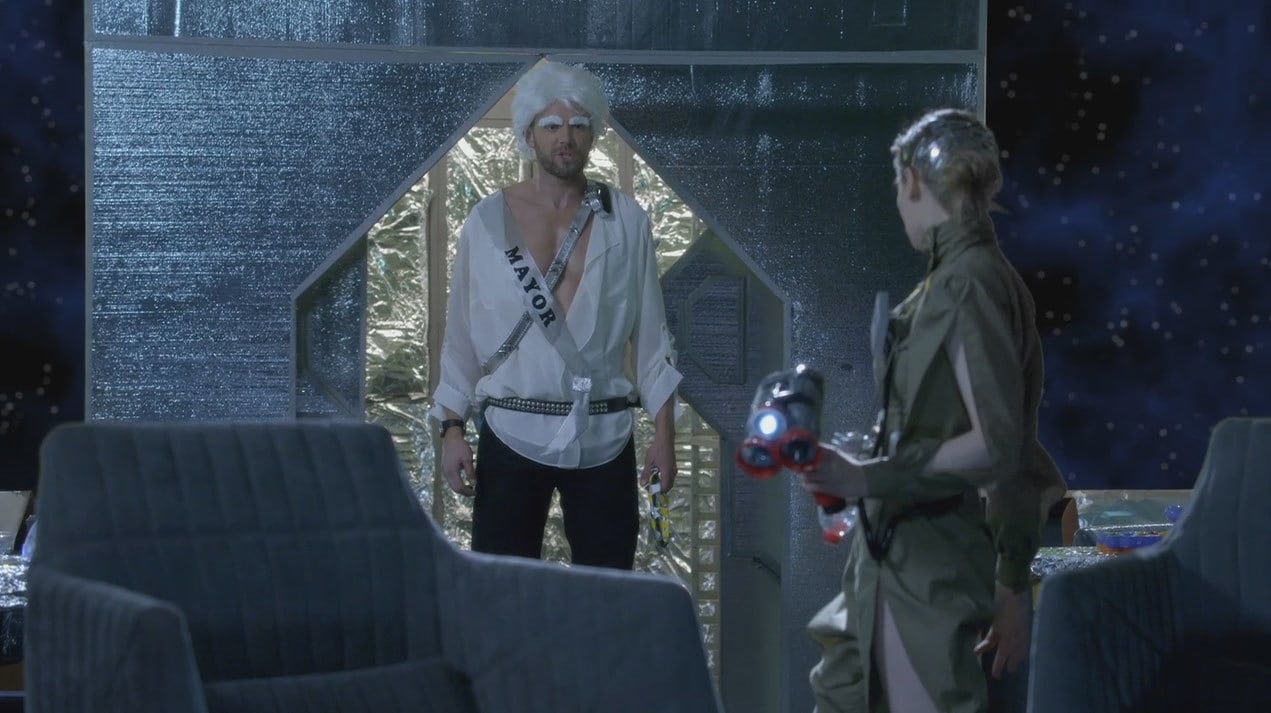


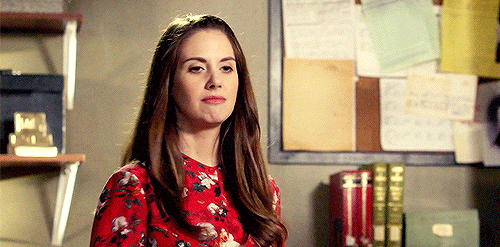

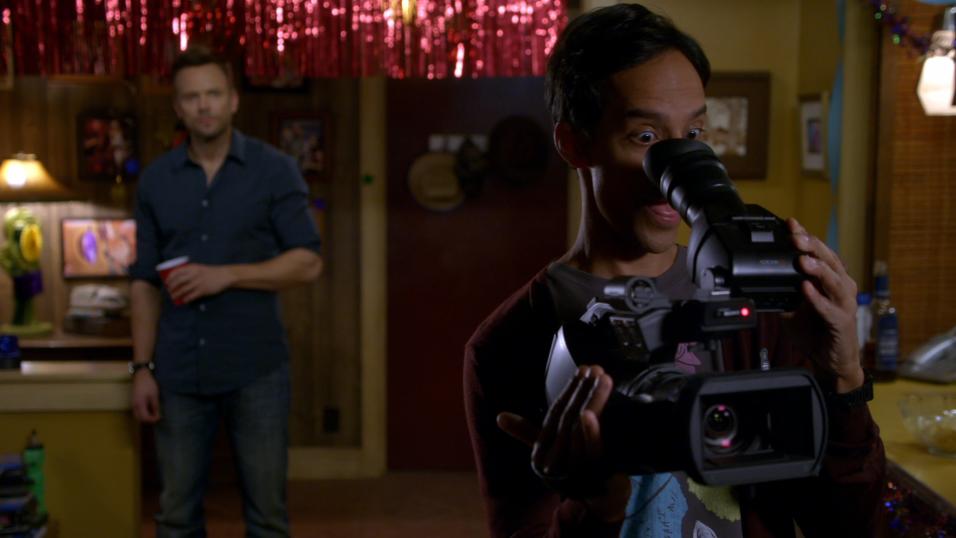
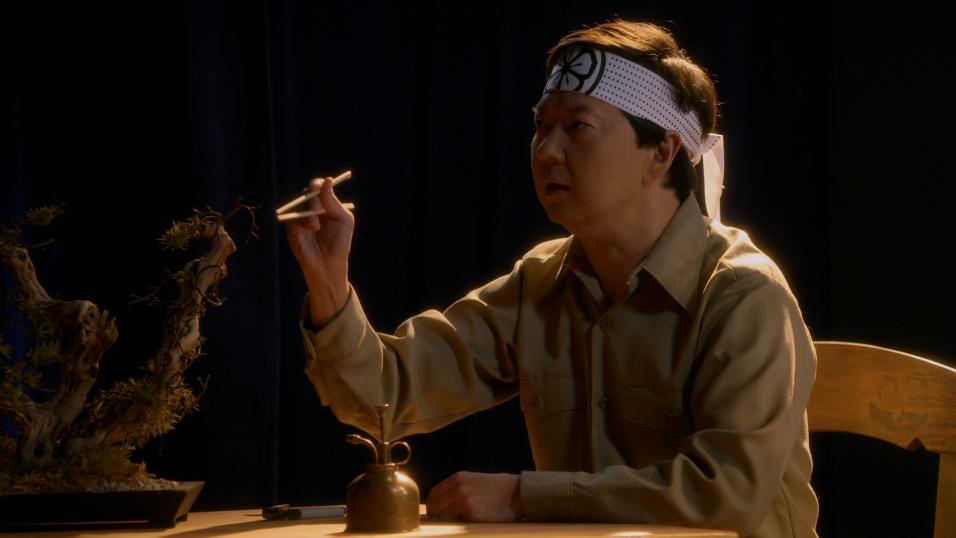
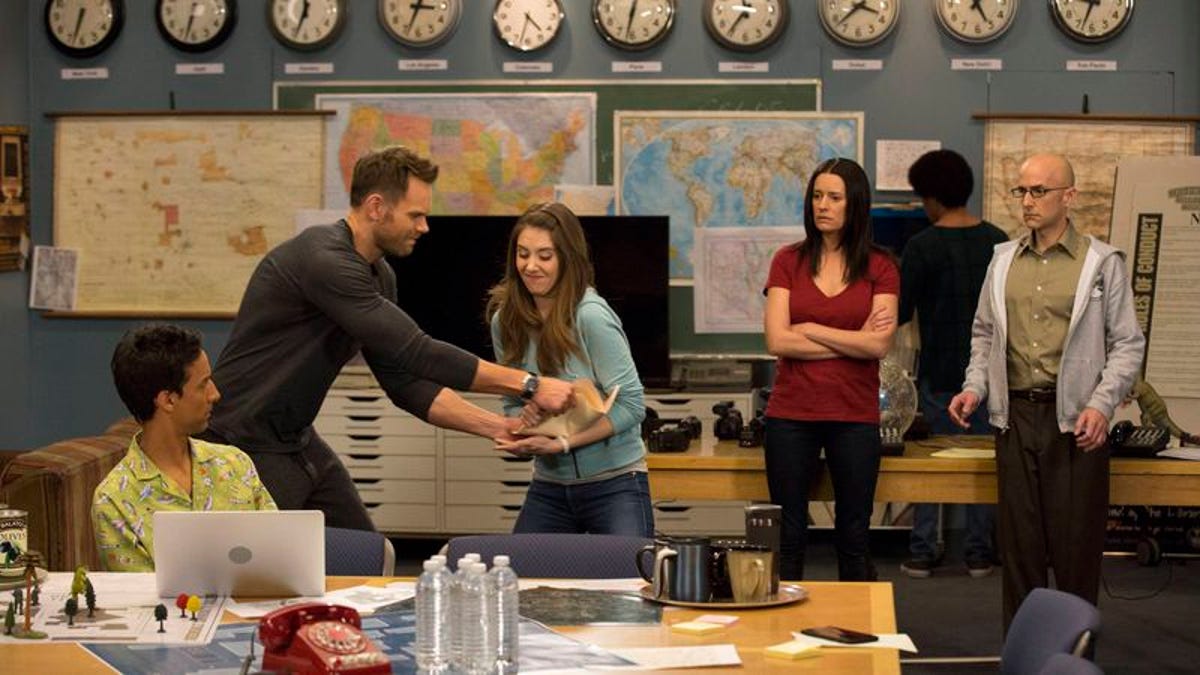
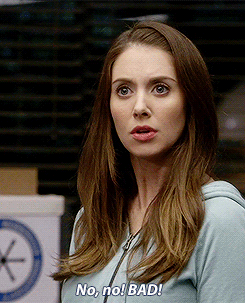
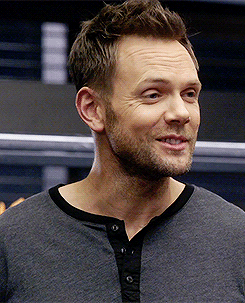
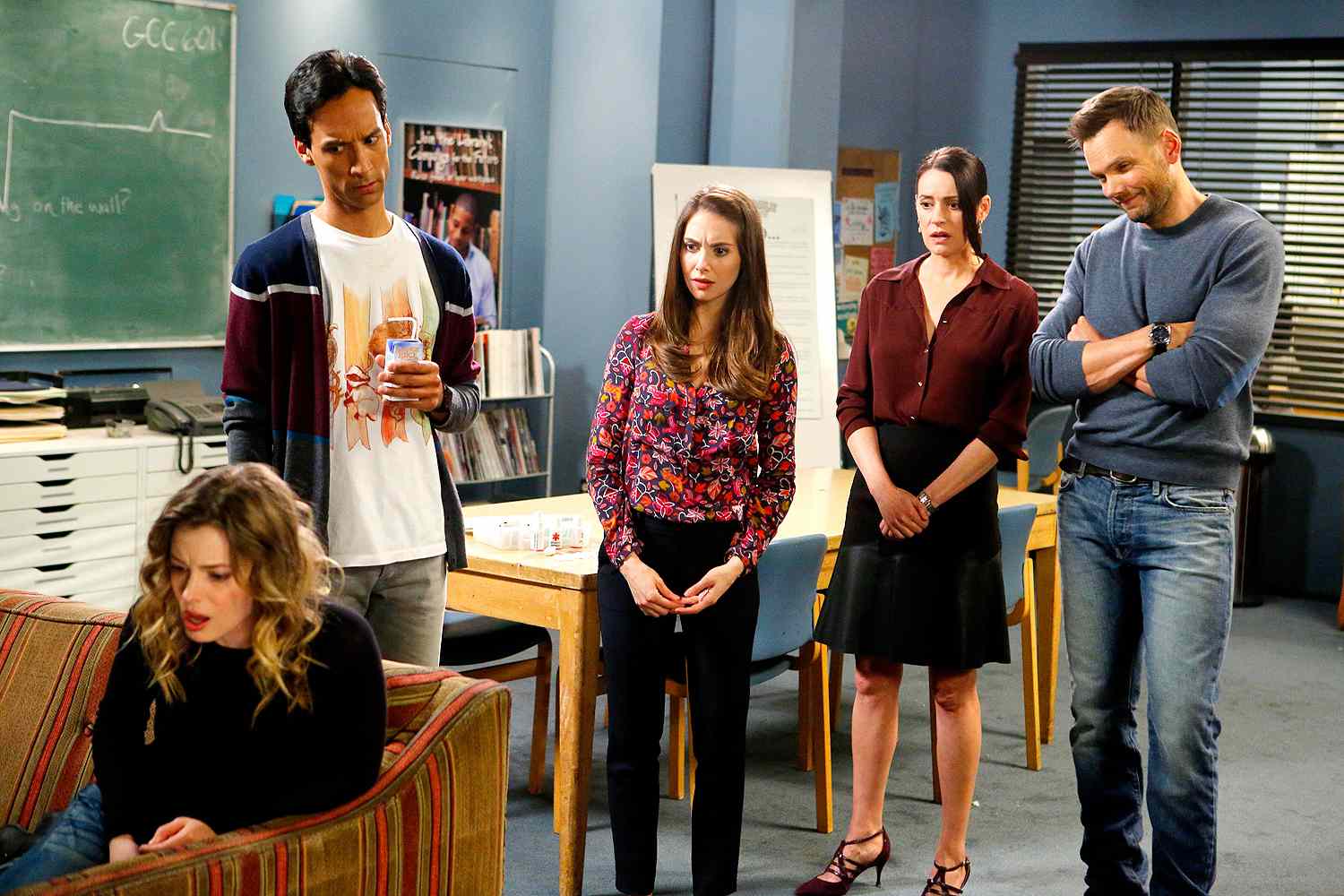
.jpg)
.jpg)




